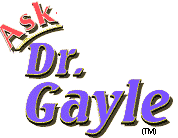
Topic: My preschooler is using "bad" wordsQUESTION: My 3 year old is expressing himself in ways we do not find acceptable. He often says "not fair" and tells us he "hates" us when we do not give him something he wants. How can we impress on him that he is hurting others when he says these things? Should we make a list of "bad" words and ban them in our house? Any insight would be appreciated. ANSWER: Words are symbolic. Through speech, we attempt to represent our life experiences. We use language to express ourselves, to communicate our needs and feelings to others. How then, do we set limits around "bad" words with our children? We want our children to be able to express a wide range of feelings, in order to communicate their needs, even when these feelings are unpopular, like "I hate you" or "not fair". If we want to teach a child not to hurt others, or to be fair, it is likely to be more effective if done in the context of relationship, rather than by banning a list of words. We run the risk of teaching our children repression, akin to the old adage, "Don't say anything unless you can say something nice". But feelings are not always nice. We get angry. And we sometimes get so mad we want to hurt others. The boundary between our feelings and actions is critical. Teaching a child that it is ok to be angry, but it is not acceptable to hit is necessary. But curtailing language with a list of "bad" words risks oversimplification and misses the real point: That relationships require empathy and a dance between our own needs and others. Hurting ourselves by not expressing our feelings can be as damaging to our relationships as expressing them through name-calling. We must take care to establish guidelines for communication that help our children work through conflict in relationship, rather than focus on "bad" words, if we want more than a superficial result. Three years old is not too young to explain what name-calling is and why it is not done in our family. You can also ask your three year old to use his words when he is angry and suggest that he does not really hate you, but he is very angry at you. (Allowing him the emotional freedom to express his anger in words may be enough, and he may spontaneously stop saying he hates you! ) Respect is a part of effective communication. But not name calling during arguments with your spouse or when angry is your best insurance that your child will follow suit. By all means, let your children know that you do not want them to name-call, swear or use "shut up" to someone. But stop short of calling in the "word police", before your child has even mastered language as a means of true self-expression. Limits can be added later. And experimenting with "bad" words is a part of most children's experience. These behaviors usually go away by if the adults explain their reasons for not using certain words, and behave accordingly. There is nothing that speaks louder than modeling qualities of respect and fair compromise during conflict. Focus on the heart of the matter, and the rest will follow!
Gayle Peterson, MSSW, LCSW, PhD is a family therapist specializing
in prenatal and family development. She trains professionals in her
prenatal counseling model and is the author of
An Easier Childbirth,
Birthing Normally
and her latest book,
Making
Healthy Families.
Her articles on family relationships appear
in professional journals and she is an oft-quoted expert in popular
magazines such as Woman's Day, Mothering and Parenting.
.
She also serves on the advisory board for Fit Pregnancy Magazine.
Dr. Gayle Peterson has written family columns for ParentsPlace.com, igrandparents.com, the Bay Area's Parents Press newspaper and the Sierra Foothill's Family Post. She has also hosted a live radio show, "Ask Dr. Gayle" on www.ivillage.com, answering questions on family relationships and parenting. Dr. Peterson has appeared on numerous radio and television interviews including Canadian broadcast as a family and communications expert in the twelve part documentary "Baby's Best Chance". She is former clinical director of the Holistic Health Program at John F. Kennedy University in Northern California and adjunct faculty at the California Institute for Integral Studies in San Francisco. A national public speaker on women's issues and family development, Gayle Peterson practices psychotherapy in Oakland, California and Nevada City, California. She also offers an online certification training program in Prenatal Counseling and Birth Hypnosis. Gayle and is a wife, mother of two adult children and a proud grandmother of three lively boys and one sparkling granddaughter.
Copyright 1996-2003. Gayle Peterson All rights reserved.
|